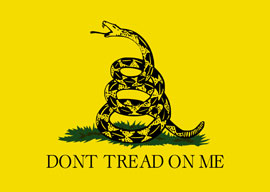
November 07, 2013

By early 1914, with the point of crisis fast approaching, the commander of troops in Ireland, Lt.-General Sir Arthur Paget, was summoned to London for an all-day interview with Asquith, some senior military brass, and Jack Seely, Asquith’s Secretary for War. Paget went back to Ireland, called his senior officers together, and told them they had the option of firing on the Ulstermen or being dismissed with loss of pension.
Paget and Seely were not the two people you would choose from a multitude to manage such a delicate matter. Dangerfield says that Seely “was remarkable, even among Secretaries for War, for an extreme ineptitude for the office he held.” Paget gets even worse press than that. Irish historian Roy Foster calls him “hysterical”; Dangerfield says he was “the clumsiest of talkers.” Politician/historian Roy Hattersley calls his ultimatum to the officers an act “more of stupidity than malice.”
Dangerfield describes the result:
The Generals went away to their own officers, and, before midnight…two telegrams had reached the War Office from General Paget.
“Officer commanding 5th Lancers,” ran the first, states that all officers except two, and one doubtful, are resigning their commissions today. I much fear same conditions in the 16th Lancers. Fear men will refuse to move.”
“Regret to report,” ran the second, “Brigadier and fifty-seven officers Third Cavalry Brigade prefer to accept dismissal if ordered north.”
The British government caved. As the brilliant orator F. E. Smith put it to the House of Commons a few days later, speaking of the government’s plan to occupy all strategic points in Ulster: “The scheme was Napoleonic, but there was no Napoleon.”
The Home Rule Bill nonetheless passed and went into the statute books as an Act in September 1914. By that time, though, World War I had broken out. Asquith persuaded Parliament to postpone implementation of the Act until hostilities were over.
In the years that followed, Ulstermen did indeed die fighting alongside thousands of Catholic Irishmen, but they died in the fields of France and Belgium, not the streets of Belfast.